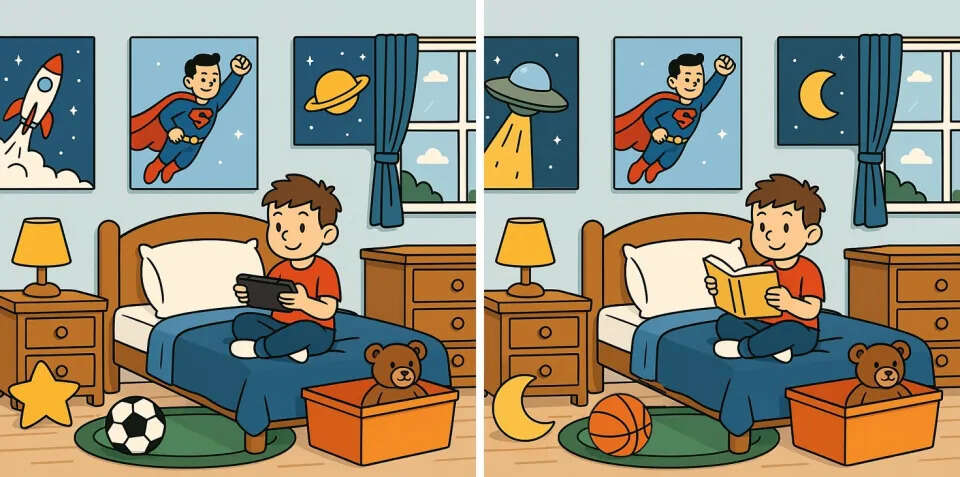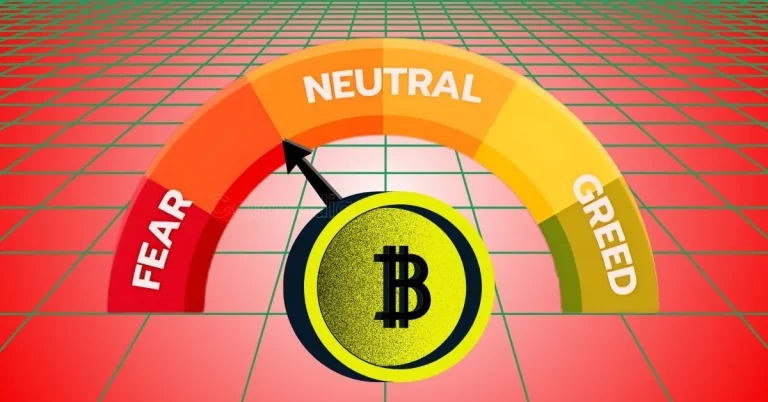
A captivating spot-the-difference puzzle featuring a boy’s bedroom challenges internet users to identify five subtle changes within 10 seconds. Crafted by Rivers Wall Art, this brain teaser assesses observation skills and creative acuity. Many adults face difficulty spotting all the differences, which range from modified posters and objects to the boy’s activities.
Do you believe your eyesight is as keen as a hawk and your mind is brimming with creativity? Then, you will adore this latest spot-the-difference puzzle that has captivated the online community. This playful challenge presents two almost identical depictions of a young boy’s bedroom. In one scene, he enjoys video games, while in the other, he quietly reads a book. However, be warned, the creators have cleverly hidden five subtle discrepancies between the two settings.
Your task? Identify all five within a mere 10 seconds! Sounds simple? Think again. Even after multiple attempts, most adults miss at least one or two.
This isn’t merely a vision test; it also evaluates your observational and creative awareness. Spot-the-difference puzzles prompt your brain to compare intricate details in two scenarios, and this particular one is exceptionally cunning. The visuals are the creation of Rivers Wall Art, renowned for producing visual challenges that are not just entertaining but also enhance mental acumen.
Set a 10-second timer and test your skills. Inspect the wall posters, shelf objects, rug color, and even the hidden details near the window. The distinctions are subtle yet ingenious. Players have identified absent books, changes in the bed pattern, or even a disappearing video game controller. However, don’t take our word for it. You must see it for yourself!
Missed one? No worries, even the most sharp-eyed puzzle enthusiasts frequently overlook at least one.
But before you resort to cheating, try again and give your brain another workout.
How These Illusions Benefit Your Mind
Optical illusions like these aren’t just enjoyable games; they are beneficial for your cognitive fitness. Regularly solving puzzles helps:
- Enhance focus and attention span
- Boost both short-term and long-term memory
- Sharpen problem-solving abilities
- Stimulate creative thinking
Engaging in these cognitive challenges is akin to mental exercises. Similar to physical workouts, the more you practice, the more skilled you become.






